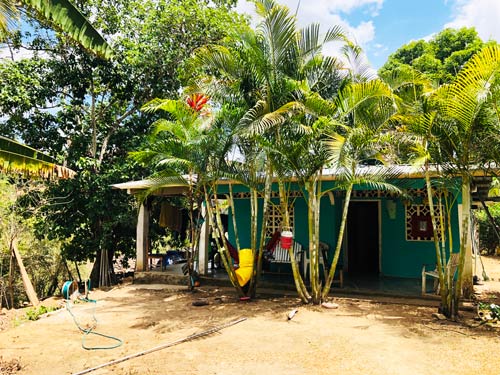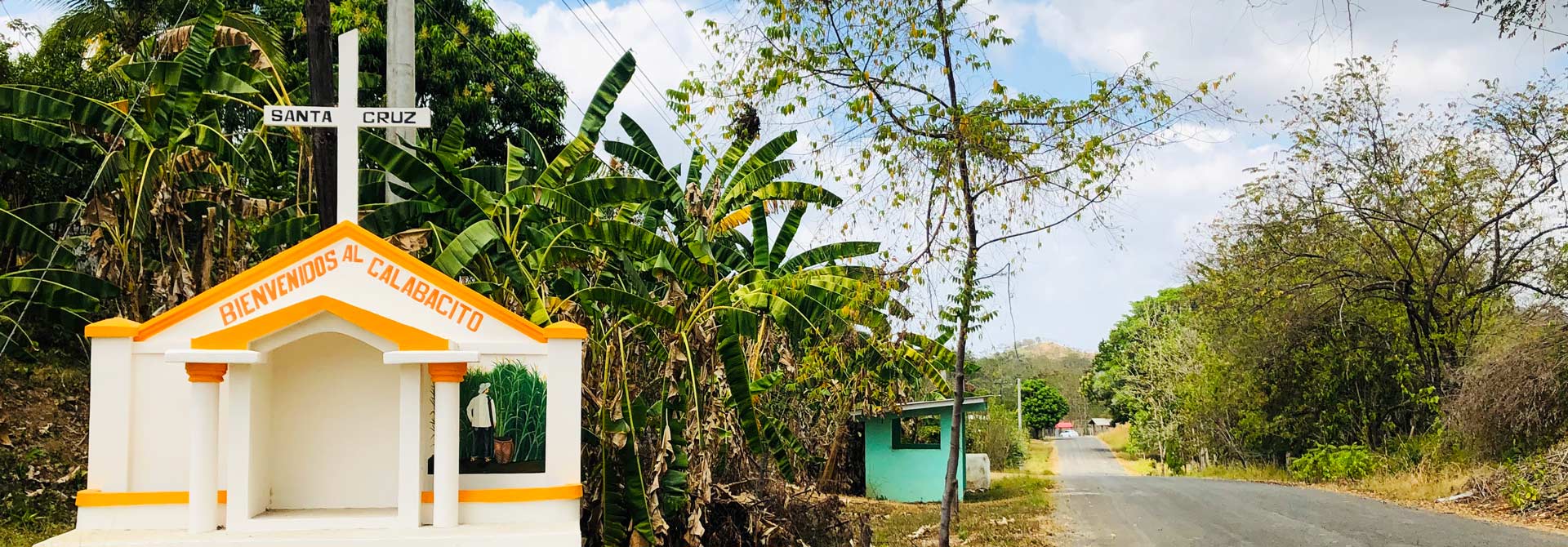 It is midday on a Sunday in the Calabacito community of Azuero and I am realizing that skipping breakfast may not have a been the best idea. Beckoned to the back of the Pinto family house, I encounter Señora Pinto seated with her daughter and granddaughter as they shred buckets of chicken with their fingers, chatting about the celebration at hand – it is Señor Pinto’s birthday.
It is midday on a Sunday in the Calabacito community of Azuero and I am realizing that skipping breakfast may not have a been the best idea. Beckoned to the back of the Pinto family house, I encounter Señora Pinto seated with her daughter and granddaughter as they shred buckets of chicken with their fingers, chatting about the celebration at hand – it is Señor Pinto’s birthday.
Not long after taking a seat in the shade of their backyard, Señora Pinto heads into the kitchen and returns with a bowl of rice, potatoes and meat. Her invitation for me to eat is not so much a request, rather a command, and I accept graciously upon feeling the heat of the bowl in my hands. I was fed three times that day by three different host families.
The warmth and generosity of community members in the provinces of Herrera cannot be understated. Each house I visited offered what they could, whether it was a light breeze in the shade of palm fronds, a glass of chicha – fruit juice, or a simple meal prepared for the family. I saw this generosity extend past the families and community members who had already worked with AMIGOS, and into locals in larger cities and rural towns. When asking for some sliced pineapple I was mi reina – my queen; approaching the counter of the coffee shop, I was mi amor – my love. These are not only terms of endearment, but simple greetings given with a welcoming smile.
“Warm” seems like the best way to describe Azuero, not just because of the graciousness of the locals, but because of the intense heat and sun. However, with the heat comes access to deliciously sweet tropical fruits, vibrantly colorful flowers, and a slow pace of life. Even the Spanish in the Azuero region seems to roll off the tongue with ease, almost as if the speaker is trying to save energy in the heat of the day. The “s” at the end of a word is dropped and “ch” combines to make a “sh” sound.
Everyone I encountered had a story to share. I found myself chatting with cab drivers about upcoming holidays and traditions, with community representatives about changes they have witnessed over the years, and with host families about past experiences with AMIGOS that have left a positive impression.
 At the end of my Sunday in Calabacito and the surrounding communities, I took a moment to soak in the natural beauty of the area. The rolling hills were dry from the summer months, and I was assured that they would turn green and vibrant by May with the rainy season. I reflected on the encounters I had throughout the day, and how surprising it was to me that everyone I met knew everyone in their community. This is a collectivist culture, meaning that people are always willing to support their neighbor without asking for anything in return. Community members will always greet one another and will take the time to chat about how things are going or the events of the day. As an outsider, I was not excluded from this narrative and was welcomed into each home and community, and seen off with an embrace and a promise to see each other soon.
At the end of my Sunday in Calabacito and the surrounding communities, I took a moment to soak in the natural beauty of the area. The rolling hills were dry from the summer months, and I was assured that they would turn green and vibrant by May with the rainy season. I reflected on the encounters I had throughout the day, and how surprising it was to me that everyone I met knew everyone in their community. This is a collectivist culture, meaning that people are always willing to support their neighbor without asking for anything in return. Community members will always greet one another and will take the time to chat about how things are going or the events of the day. As an outsider, I was not excluded from this narrative and was welcomed into each home and community, and seen off with an embrace and a promise to see each other soon.

